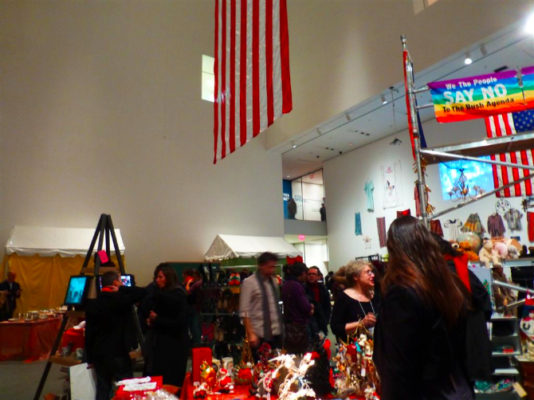Search
To search for an exact match, type the word or phrase you want in quotation marks.
A*DESK has been offering since 2002 contents about criticism and contemporary art. A*DESK has become consolidated thanks to all those who have believed in the project, all those who have followed us, debating, participating and collaborating. Many people have collaborated with A*DESK, and continue to do so. Their efforts, knowledge and belief in the project are what make it grow internationally. At A*DESK we have also generated work for over one hundred professionals in culture, from small collaborations with reviews and classes, to more prolonged and intense collaborations.
At A*DESK we believe in the need for free and universal access to culture and knowledge. We want to carry on being independent, remaining open to more ideas and opinions. If you believe in A*DESK, we need your backing to be able to continue. You can now participate in the project by supporting it. You can choose how much you want to contribute to the project.
You can decide how much you want to bring to the project.

There’s a bit of everything, from wigs to flags, and as if that wasn´t enough, Martha Rosler is also going to be present, in a sort of Abramovic replica, in the very same MoMA space. When Martha Rosler moved to California at the end of the seventies, she discovered garage sales, this expression of micro-economy intermingled with the inalienable right to sell everything you own on the street or in your own garage.
She was surprised by the garage sales, not just for the recuperation of value (use and monetary), but also for the different relationship that was generated between individual and community. What better place to organise a sale of old junk than an exhibition space? Even more so if this place is called MoMA and it has overtones of a shopping centre. By transferring the garage sale to the gallery, in this case to the central atrium of the monstrous white cube, Rosler proposes that the visitor let loose this ever so participatory desire to take whatever one wants. And, as she herself defends, it throws a certain light on the usual repression in art –in this part of the world- of the question of value and exchange, use and work.
In the original event, in 1973, in the gallery of the Department of Visual Arts of the University of California in San Diego, Rosler included images of Playboy, a recording of meditations on capitalism, a few personal letters, old diaphragms and baby’s clothes. This time she includes photographs of past editions, along with screens where we see ourselves in real time. Between feminist practice and the happening, between art critique and the production of experience (desire, consumerism, relation, interaction, memory, community), what this installation-performance focuses on is our relation to the object, capable of attracting us and containing the trace of a concrete history.
In this system where the objects appear and disappear in a mysterious process, be it from a delocalised factory or recycled rubbish, the sensation of indifference, of use and throw away, feeds our condition of post-Fordian consumerism. The guilt of fetishizing a mass-produced object and the embarrassment of knowing that tomatoes are the fruit of exploitation, shoes of child slavery and iPhones of the blood of the Chinese working classes, turns our conscience until the next tweet. It is then in organising networks for recycling, soothing the ethical wound with vintage, or with an effective and sustainable relation between producer and consumer, that an understanding of the whole line of production is facilitated, while also guaranteeing direct and responsible relations between all the implicated parties, going against the seemingly imposed scheme of production of continuing to buy things without stopping to consider their origin, the damage to the climate or their useful life.
Can we by any chance translate this itinerary to art? Elaborate networks of participatory production and guarantee a salary to the primary producer? A responsible consumption of art?
The identification with the object, evident in Garage Sale, ends up becoming the trigger that favours the exchange, the relation, but not the end in itself. Ebay is not the same as a face to face with the person who is selling you the last watch of their grandfather. It charges the watch with a meaning that is at the same time archived by the buyer, who from that moment on, is not sure if he is buying a watch or the history of the grandfather. The same mechanism has been absorbed and serves as a base for the much-trumpeted “experience of economy”.
Technical details: The money raised will be given to non-profit organisations according to the criteria of Martha Rosler. On the webpage of the project there is a live streaming and one can also find a publication, “Garage Sale Standard”, with more information. All of the people who purchase something will have their photograph taken by a photographer of weddings, baptisms and communions. In its time Garage Sale has travelled with the Rosler retrospective to various cities, amongst others, landing at MACBA in Barcelona, in that darned 1999.

Xavier Acarín is fascinated with experience as the driving force of contemporary culture. He has worked in art centres and cultural organizations both in Barcelona and New York, focussing in particular on performance and installation.
"A desk is a dangerous place from which to watch the world" (John Le Carré)